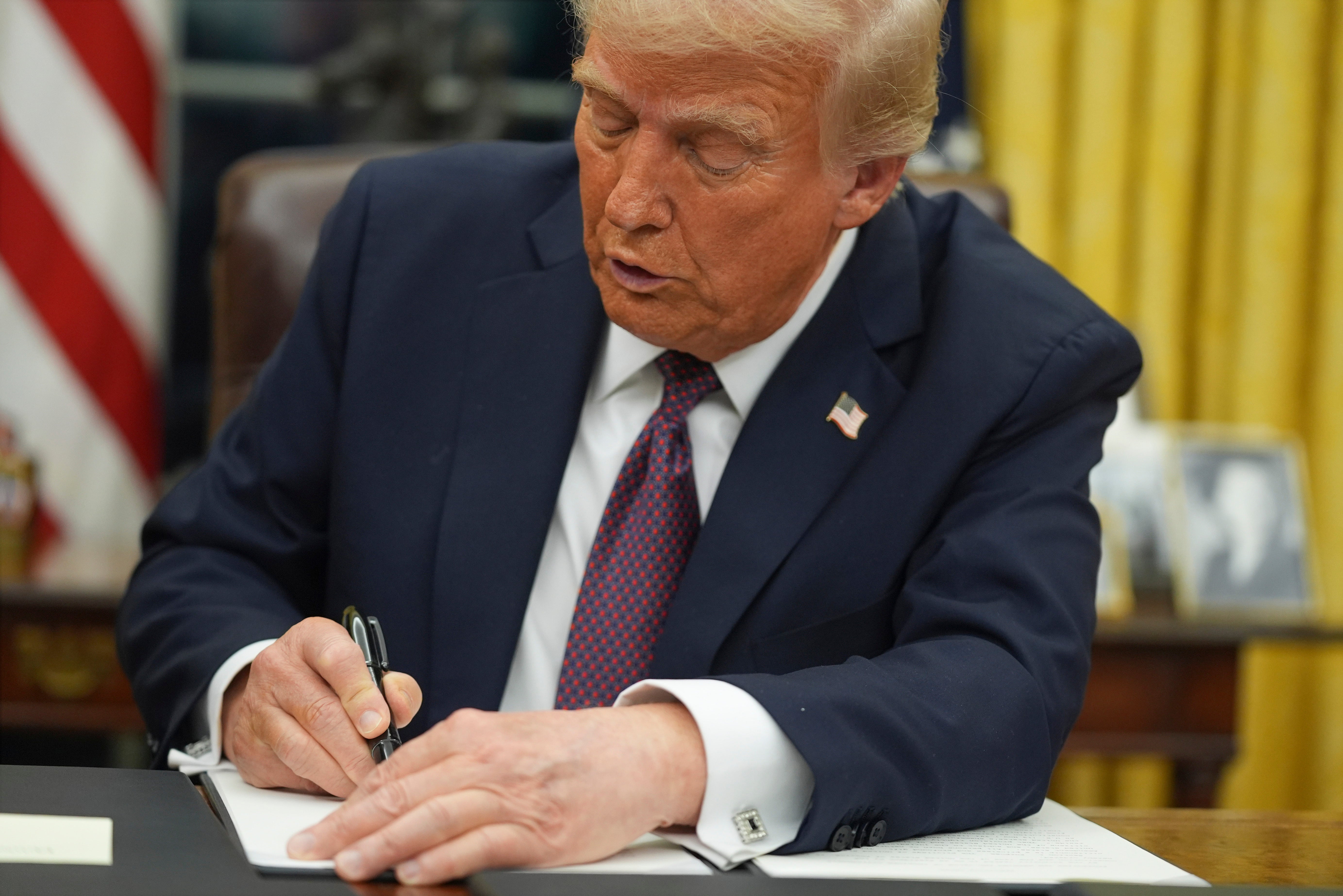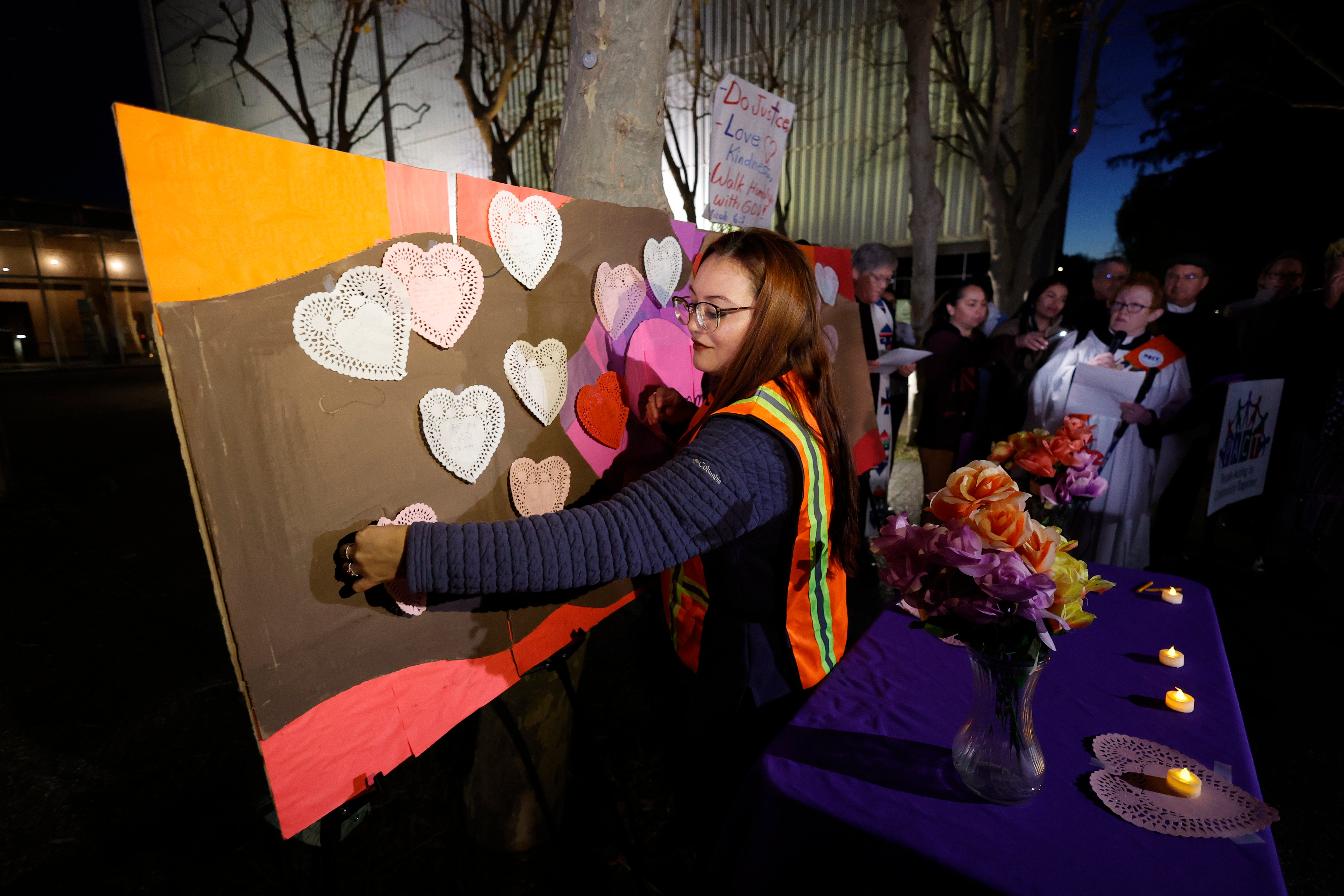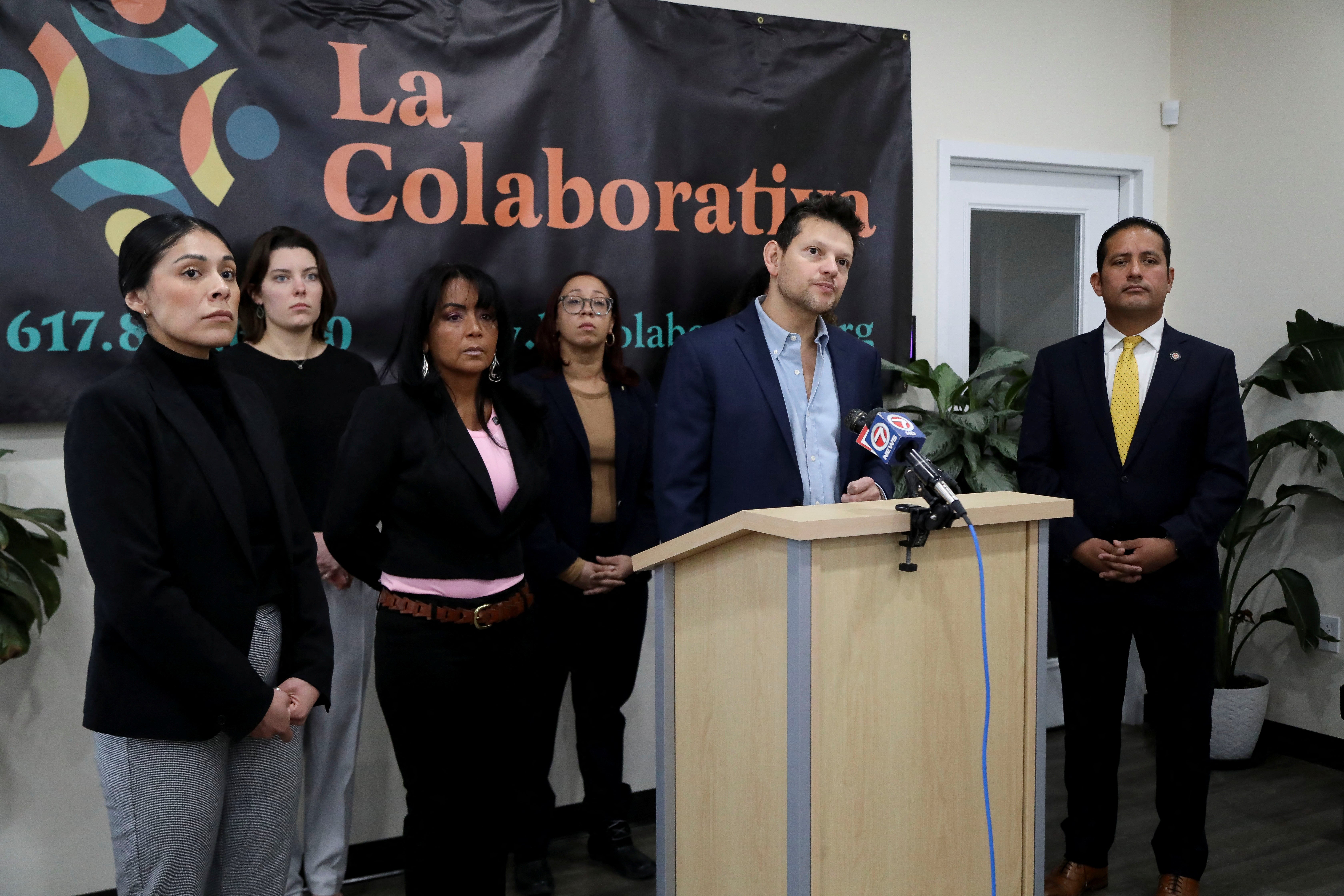Monica and her husband arrived in the United States from Venezuela six years ago. They’ve been “building a life” and “trying to do everything” to make their home here while in the process of seeking asylum.
“Working, paying taxes — we were able to buy a home,” she said. “We had reached a point of stability in this country and wanted to have a child.”
She is now 12 weeks pregnant.
“I should be worried about the health of my child, I should be thinking about that,” she said.
Instead, she is stressed, anxious and “depressed,” facing a “reality that my child might not be able to become a U.S. citizen.”
President Donald Trump’s executive order aims to unilaterally redefine the Constitution and federal law by denying citizenship to children born in the United States if their parents are “unlawfully” present or have “lawful but temporary” status in the country.
Monica is one of 16 pregnant plaintiffs in a federal lawsuit from CASA and the Asylum Seeker Advocacy Project aimed at overturning the order, joining at least five lawsuits from pregnant women, civil rights groups and officials from across the country that were filed hours after Trump signed the order on January 20.
“The executive order caused a lot of confusion for families like mine,” Monica told reporters in Spanish on Wednesday. “It’s left us with more uncertainty than ever before … Will my child be a U.S. ciitizen? Will he be nothing? We don’t know what to do.”

Under the sweeping terms of Trump’s order, children born in the United States after February 17 can be denied citizenship “when that person’s mother was unlawfully present” or “lawful but temporary,” and if the father “was not a United States citizen or lawful permanent resident at the time of said person’s birth.”
The 14th Amendment’s citizenship clause plainly states that “all persons born or naturalized in the United States, and subject to the jurisdiction thereof, are citizens of the United States and of the state wherein they reside.”
“A lot of people like me are very sad and very anxious,” Monica said. “Our children should belong in the country where they were born, in this country, in the United States.”
Adelina, another plaintiff in the lawsuit, has been living in the United States for seven years and is currently six months pregnant. She has one other 5-year-old child, who was born in the United States and is a citizen.
“It pains her to think that one of her children will have more benefits than the other, even though they were both born here,” according to the complaint. “She is concerned that if her unborn child is not considered a United States citizen, they will experience significant hardship and not have the same opportunity as their sibling.”

Families fear not just the abrupt revocation of their child’s constitutional rights but the possibility of their future children entering a stateless limbo, leaving families to navigate complex legal and humanitarian issues in an already-byzantine immigration system.
Advocacy groups are also closely watching how hospitals and social services in Republican states will try to implement Trump’s order.
“The number of places where chaos will reign is actually quite high,” according to Rupa Bhattacharyya, legal director with the Institute for Constitutional Advocacy and Protection.
The 14th Amendment was “specifically enshrined” to “ensure that no one — not even the President — could deny children born in America their rightful place as citizens,” according to a separate lawsuit from a coalition of civil rights groups representing immigrant mothers.
If Trump’s order is allowed to go into effect, people born in the United States could be denied passports and Social Security numbers, jeopardizing their ability to travel and work within the country and receive government benefits and protections afforded to citizens.
Maribel, another plaintiff in the case, is an undocumented immigrant from El Salvador who was born in Guatamala. She has lived in the United States for 18 years. She is expected to give birth to her third child in July. Her two daughters, age 14 and 10, are U.S. citizens.
“She fears her unborn child will not have the same rights to citizenship as the future child’s older sisters, and could even be subject to deportation, separating the family,” according to the lawsuit. “She is afraid that her child won’t have access to healthcare because they won’t be eligible for federal benefits. She feels it is deeply wrong to subject an innocent newborn to such cruelty.”

The Naturalization Act of 1790 applied to only “free white persons,” and the Supreme Court’s reviled decision in Dred Scott v Sandford in 1857 affirmed that citizenship could not be granted to Black people of African descent.
That decision was later rectified with the ratification of the 14th Amendment that ended slavery in America and established citizenship for freed Black Americans, as well as “all people born or naturalized in the United States, and subject to the jurisdiction thereof.”
The Supreme Court upheld that principle in 1898, when it determined that Wong Kim Ark — who was born in San Francisco but denied entry into the United States because he was of Chinese descent — was a U.S. citizen.
In recent years, right-wing legal groups have elevated a once-fringe argument against the concept, which was featured in Project 2025’s guide for Trump’s immigration policy.
Groups like the Heritage Foundation and Claremont Institute have sought to argue that the word “jurisdiction” in the 14th Amendment means only a person’s political allegiance to the United States, and that the allegiance of children born to immigrant parents is to their parents’ home countries.
Trump’s order is “flatly inconsistent with the 14th Amendment,” Bhattacharyya said.
“President Trump has no authority to amend either the constitution or the federal law by the stroke of his pen on an executive order,” she said.







